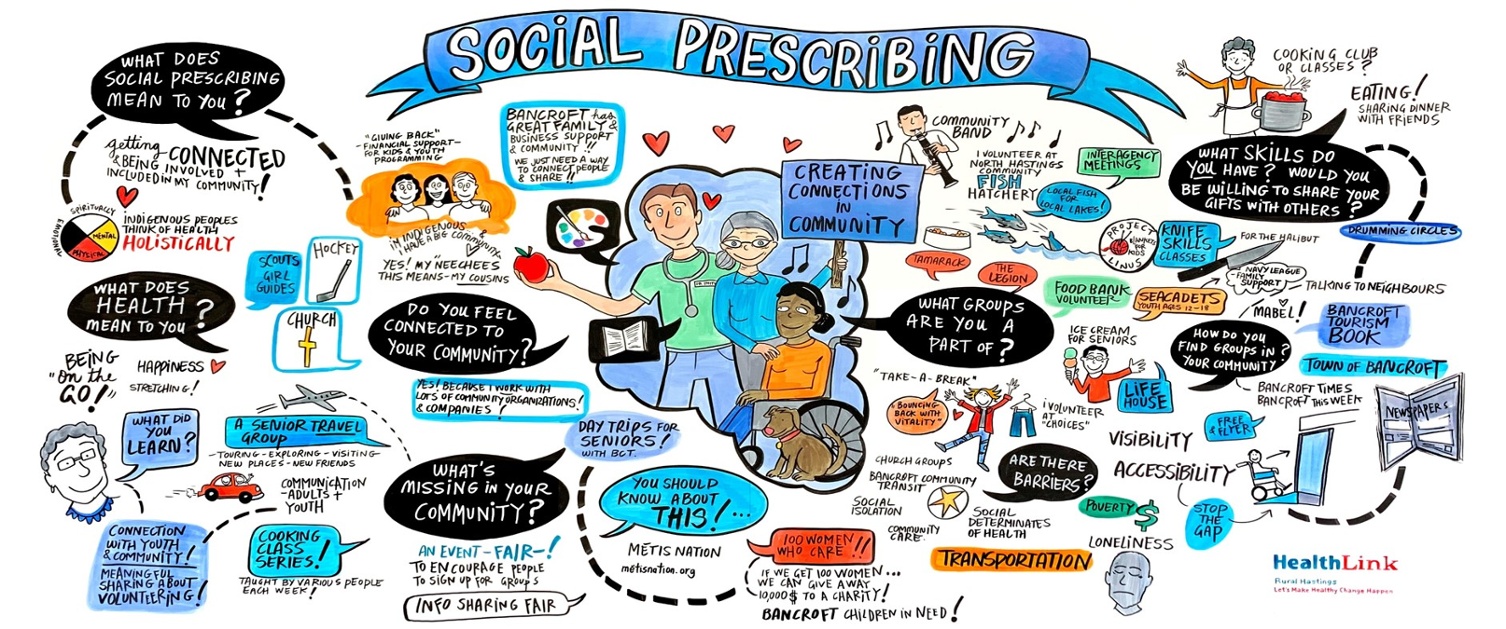What is Social Prescribing?

Social prescribing, also sometimes known as community referral, is a means of enabling health professionals to refer people to a range of local, non-clinical services. The referrals generally, but not exclusively, come from professionals working in primary care settings, for example, GPs or practice nurses.
Recognising that people’s health and wellbeing are determined mostly by a range of social, economic and environmental factors, social prescribing seeks to address people’s needs in a holistic way. It also aims to support individuals to take greater control of their own health.
Schemes delivering social prescribing can involve a range of activities that are typically provided by voluntary and community sector organisations. Examples include volunteering, arts activities, group learning, gardening, befriending, cookery, healthy eating advice and a range of sports.
Social prescribing is designed to support people with a wide range of social, emotional or practical needs, and many schemes are focused on improving mental health and physical wellbeing. Those who could benefit from social prescribing schemes include people with mild or long-term mental health problems, people with complex needs, people who are socially isolated and those with multiple long-term conditions who frequently attend either primary or secondary health care.
There are different models of social prescribing being employed across Wales. Most involve a link worker (other terms such as community connector, navigator and health adviser are also used) who works with people to access local sources of support.
Social prescribing can be understood as one of a family of approaches, sometimes called community-centred approaches, which aim to mobilise the power of communities to generate good health.